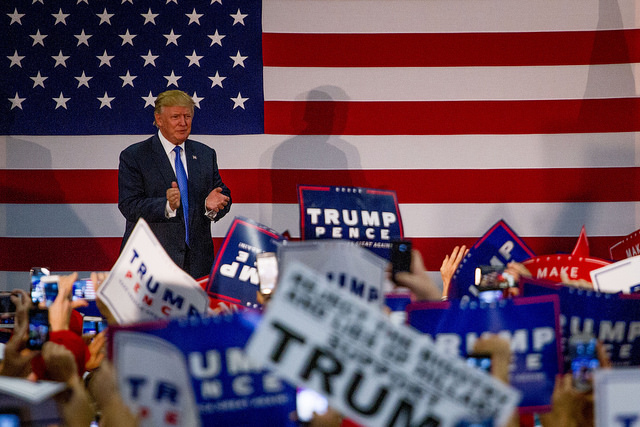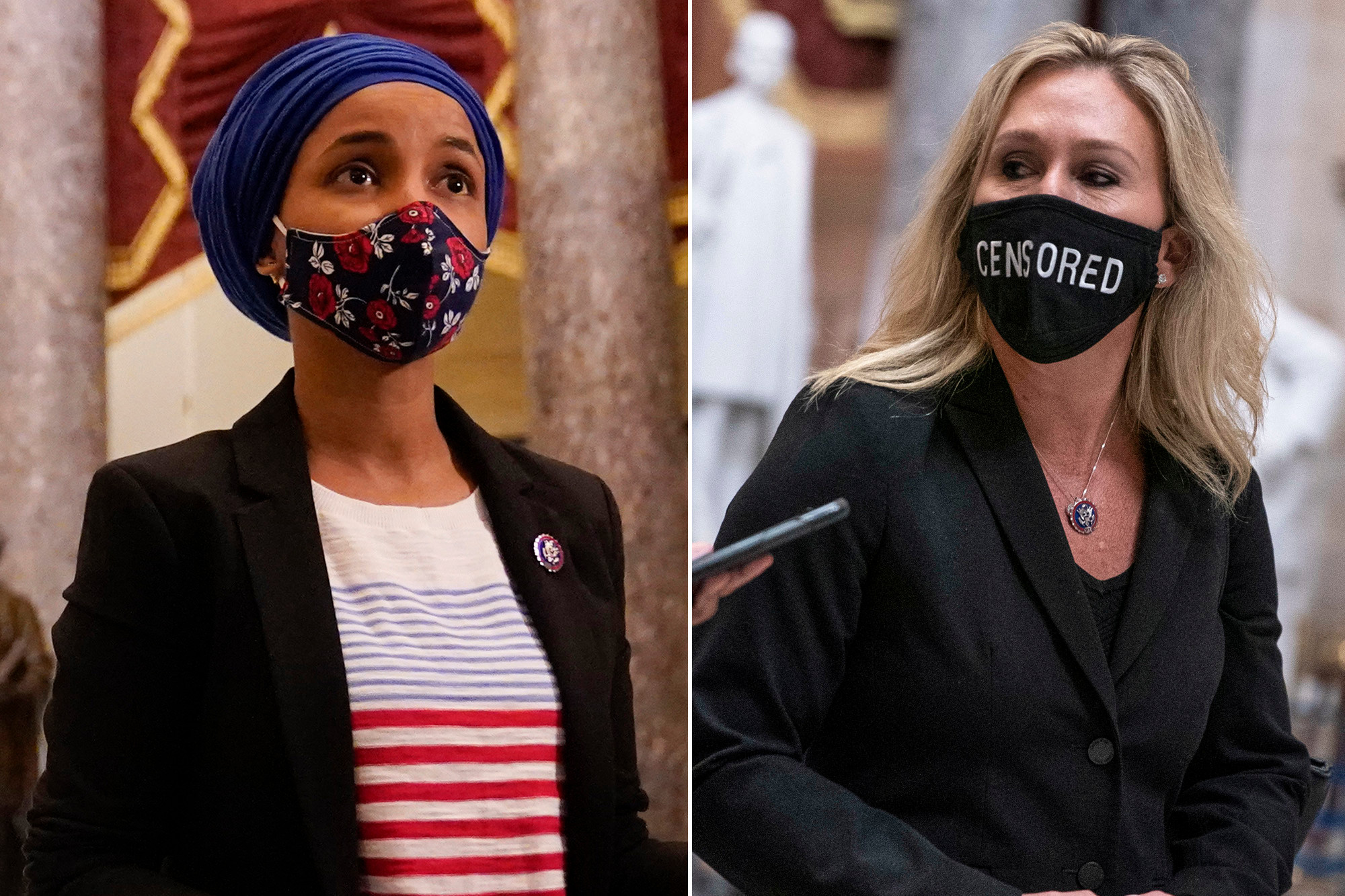As soon as Donald Trump stepped off of his escalator and announced his candidacy for President of the United States last June, we knew he was not going to be a typical candidate. If you were critical of him, you called him an inexperienced reality star who was not to be taken seriously. But from that day on, his supporters have cited him as a true political outsider without ties to the corrupt Washington establishment.
Since October, this maverick image has been integral to Trump’s brand as a political leader. His colorful pledges to “drain the swamp” in Washington, to end special interest lobbying, and to give new voices a chance to govern served as moderate counterweights to his more controversial stances on topics like immigration, reproductive rights, and foreign policy.[1]Recently, the way in which our executive office will operate in the years to come has become clear. Specifically, in the past few weeks, Donald Trump and his transition team have been nominating their appointments for various cabinet and high profile staff positions. However, almost every one of Trump’s nominations is in direct contradiction of his promise to purge D.C. of elitist, well-connected insiders.
The problem lies here: Many if not all of Trump’s nominees have built their careers on the very economic and political establishment that Trump’s supporters demanded a populist revolt against.[2] Despite the now empty mantra “Make America Great Again,” the people Trump surrounds himself with to run the country are integral members of the corrupt system that he criticized so intensely during the campaign. In the last few weeks, decisions that completely oppose Trump’s narrative to “drain the swamp” in Washington have become a pattern.
The following are just a few of the many appointments that have raised eyebrows. Trump’s pick for the Treasury Secretary was Steven Mnuchin, former Chief Information Officer at Goldman Sachs, the infamous firm that has drawn harsh criticism from Trump himself.[3]
To add to this pattern of corruption, it was revealed on January 18th, before his hearing, that Mnuchin failed to disclose nearly $100 million of his assets on Senate Finance Committee disclosure documents.[4] This oversight is a telling start to just how dishonest and unethical Trump’s cabinet is turning out to be.
Goldman appears on the resumes of many high profile individuals on Trump’s team, including Stephen Bannon, his chief strategist and the former editor-in-chief of alt-right media platform Breitbart News. Ironically, Bannon has come out in defense of Wall Street veterans like himself and Mnuchin, citing them as Washington outsiders.[5]
In addition to Wall Street nominees, Trump’s proposed cabinet is not lacking in members of the Republican Party establishment that he distanced himself from throughout the election. Elaine L. Chao, his choice for Transportation Secretary, served as the deputy treasury secretary for President George W. Bush, sat on many corporate executive boards, and is married to Senate Majority Leader Mitch McConnell. And Trump’s chief of staff will be none other than Reince Priebus, Chairman of the Republican National Committee.[6]
One would think that nominees who are so contradictory to Trump’s promise to “drain the swamp” would draw shock and criticism from his supporters, who claimed they voted for him not because they condoned his behavior or rhetoric but because they wanted a change in the power structures in Washington. However, vocal and widespread disapproval from his followers has been minimal, if it exists at all.
Supporters of Donald Trump have become notorious for sticking with their candidate through murky situations similar to the appointment process. Lawsuits, tax avoidance, and sexual assault allegations were unsuccessful in deterring his zealous voters from showing up at his rallies and, evidently, at the voting booth.
The question to this day remains: What attracted these fervent proponents to Trump in the first place? Was it really his promises of revolt from Washington insiders and corrupt bankers?
Trump’s appeal is built off of the fantasy that one maverick can infiltrate and change the entire system. He ignites excitement and enthusiasm not for causes and issues that Americans care about, but for himself as the redeeming hero of Western capitalism. His self-congratulatory rhetoric was a hallmark of his campaign, and without a political record to review, America could only judge Trump on the perceived success of his brand, his companies, his foundation, and every other aspect of his general public persona. And with a highly recognizable empire behind him, one deeply rooted in U.S. popular culture, many viewed Trump as an acceptable candidate.
Trump’s defenders call him an underdog, a billionaire businessman who will turn Washington, D.C. on its head. His famous chain of hotels, so closely associated with his own name flashily displayed in huge letters, appeals to individuals who associate his brand with their own ideas of success. Anything Trump touches turns into gold, therefore we’re promised by the illusion of his brand that Trump holding the presidential reins will bring prosperity to the country, bringing us back to a time when America was “great.”
The message is simple: America must return to its past glory, and Trump is the only man brave enough to challenge the Washington establishment blocking us from getting there. Every aspect of Trump’s candidacy that would seem unprofessional on another candidate made him more appealing to his supporters: his lack of political experience, his unsophisticated speeches, and his war with the media all helped add to his maverick image. This is the fantasy that exists in the mind of the Trump voter: a successful, unconforming hero breaking out from the norm and pulling them up into prosperity with him.
This idealistic fantasy is an illusion. The American people must understand that the president is only a singular variable in a web of governance and policy decisions. And President Trump cannot ignite any major shifts in the government without a cabinet and staff that stands for the same mission.
Yes, Trump’s victory has placed a Washington outsider at the top of the pyramid. But if the rest of D.C. remains unchanged, how can anything different be produced?
“I am your voice,” Trump stated to thunderous applause at the Republican National Convention in Cleveland. “I alone can fix it. I will restore law and order.”[7]
As his cabinet keeps flooding with constituents of the very swamp he promised to drain, we will wait and see how long his supporters continue to believe that.
[1] Donald J. Trump for President Inc.”Trump Pledges to Drain The Swamp and Impose Congressional Term Limits.” Donaldjtrump.com. October 18, 2016.
[2] The New York Times. “Donald Trump’s Cabinet Is Taking Shape. Here’s the Latest List.” Nytimes.com. January 18, 2017.
[3] CBS News Staff. “Donald Trump’s Cabinet: Announcements so far.” cbsnews.com. November 30, 2016.
[4 ]Rappeport, Alan. “Steven Mnuchin, Treasury Nominee, Failed to Disclose $100 Million in Assets.” Nytimes.com. January 19, 2017.
[5] Peters, Jeremy W. “Donald Trump’s Cabinet Choices Deepen an Age-Old Republican Rift.” Nytimes.com. December 1, 2016.
[6] The New York Times. “Donald Trump’s Cabinet Is Taking Shape. Here’s the Latest List.” Nytimes.com. January 18, 2017.
[7] Collins, Stephen. “Donald Trump’s Obsession with Himself.” CNN.com. June 2, 2016.



